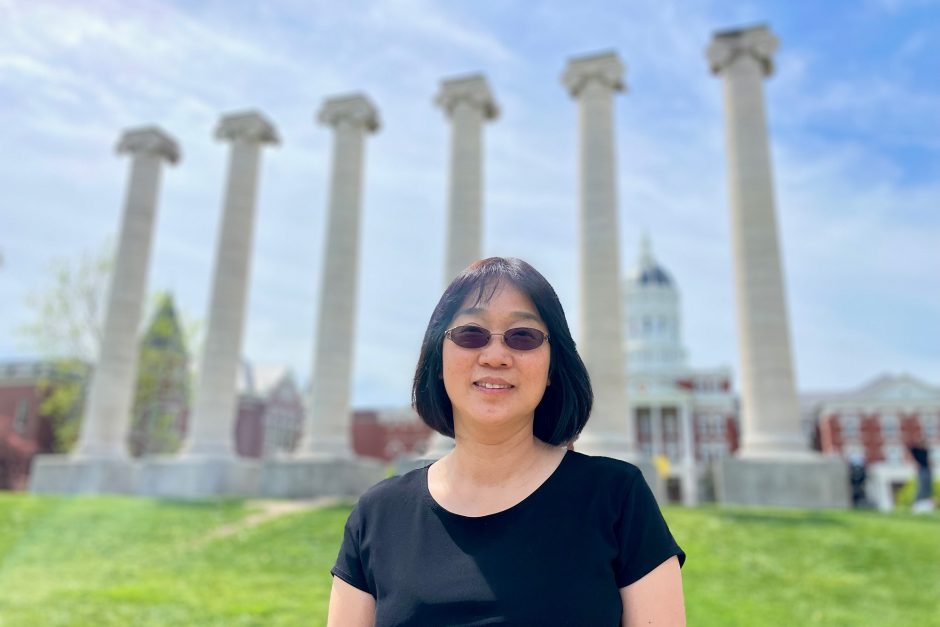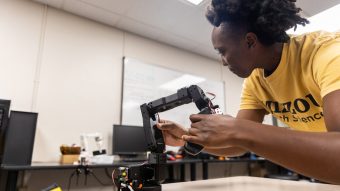
May 7, 2024
A new University of Missouri researcher is developing next-generation sensors that could be key to using hydrogen as a clean energy source in the future.
Professor Xiangqun Zeng is a MizzouForward hire with joint appointments in chemistry in the College of Arts and Science and in chemical engineering in the College of Engineering. She brings to Mizzou an impressive portfolio of sponsored research, including funding from the Department of Energy.
Hydrogen is a promising energy source however is flammable and can be dangerous. Additionally, hydrogen losses to the atmosphere impact the lifetime of other greenhouse gases, indirectly contributing to increasing temperatures.
Existing sensors can detect hydrogen in parts per million, which is comparable to finding a specific drop of water in a million gallons. Zeng’s goal is to develop a sensor that can detect even smaller amounts — an unprecedented level of parts per billion.
She’s doing that by delving deeper into understanding how chemical and biological systems interact. While these reactions and interactions happen all around us, the potential for harnessing these naturally occurring phenomenon for technological advancement has remained largely untapped.
Zeng applies the same principles to environmental monitoring and health care. She is currently focused on sensors that monitor greenhouse gas emissions, as well as medical sensor devices that can provide continuous monitoring of key biomarkers.
“The reason I am here at Mizzou is really because I have a lot of ideas and my creativity can be best utilized at max,” she said. “I’m so valued here, and I can really see tremendous potential for my work. There are a lot of opportunities for collaboration, and I’ve already reached out to colleagues across departments and colleges whose work complements mine. I’m excited to make more of an impact.”
Research around hydrogen, nuclear and renewable energy will be cornerstones of the new Center for Energy Innovation. Expected to open by 2027, the center will bring together engineers, chemists, physicists, agronomists and public policy experts to develop sustainable solutions for the future.



